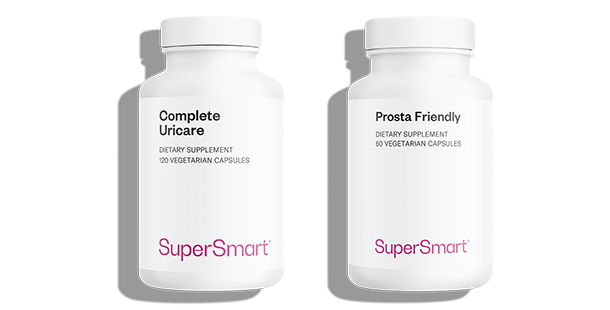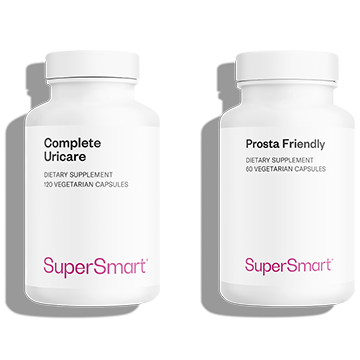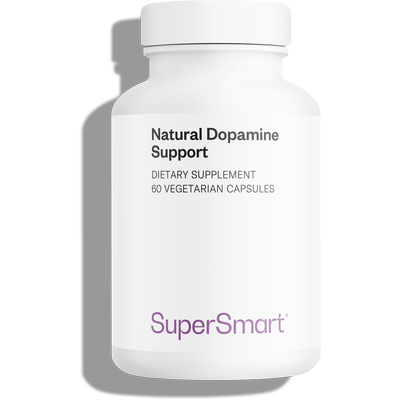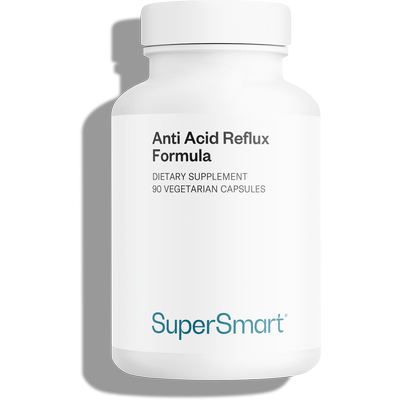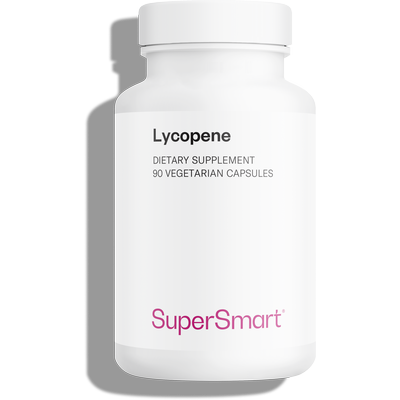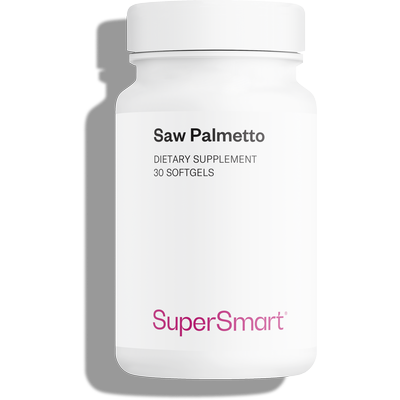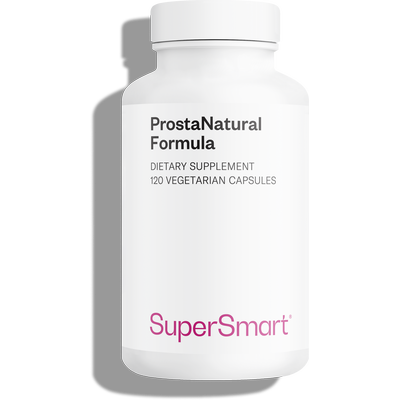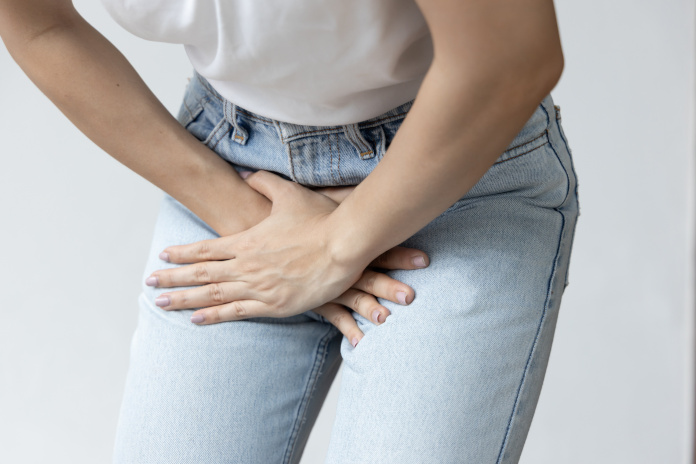In stock
Complete Uricare + Prosta Friendly
What is in Complete Uricare + Prosta Friendly
Any questions?
Our team of nutrition experts and scientists has the answers.
Complete Uricare contains several natural ingredients chosen for their benefits for urinary health and synergistic action.
A reputable pumpkin seed extract (Go-Less®). Pumpkin seeds have been used for centuries in Central America to treat nephritis and disorders of the urinary system such as incontinence. The German Commission E recognises pumpkin seeds for their ability to relieve symptoms of irritable bladder and for treating problems with micturition (bedwetting, enuresis, incontinence). Studies have confirmed that supplementing with pumpkin seed extract provides relief from these problems (3).
The pumpkin seed extract in this formulation is combined with a soy germ extract (SoyLife) under the brand name Go-Less®. This blend of pumpkin seed and soy germ extracts has been clinically studied for its benefits for the urinary system and in particular the bladder. Suitable for both men and women, it promotes regulation of bladder movements and prevents irritation caused by various factors such as the bladder compression that often accompanies an enlarged prostate.
D-mannose. D-mannose is a sugar which is not absorbed by the body. It is closely related to sugars naturally present on cell surfaces in the urinary tract. Pathogenic bacteria latch on to these surfaces to get to the bladder. When D-mannose is present in urine, these bacteria tend to bind to these sugars rather than to the urinary tract cell walls and can thus be easily excreted in urine (1). Several clinical trials have confirmed the benefits of D-mannose in preventing urinary problems (2).
Angelica (angelica archangelica). Angelica is a medicinal plant used for centuries to relieve gastrointestinal spasms, bloating and problems of the urinary system. Pharmacological tests have shown it to be powerfully antiseptic due to its high content of furanocoumarins, phytosterols and essential oil. It has an inhibitory effect on urease, an enzyme found in certain yeasts and pathogenic bacteria, including the dreaded Helicobacter pylori.
Zinc. Zinc is a trace-element (ie, it is only found in minute quantities in the human body) which helps maintain and restore normal function in the immune system, particularly in the urinary tract. Nowadays, zinc intake has decreased significantly due to modern farming methods which deplete the soil, and the refining of cereals. It’s not helped by alcohol consumption, drugs, diabetes, and digestive absorption problems (such as Crohn’s disease), all of which are on the increase, and go a long way to explaining the deficiency in zinc currently affecting countries in the West.
Molybdenum. Like zinc, molybdenum is a trace element that’s essential for health. It’s mainly present in the kidneys where it plays a vital role in protein synthesis and healthy urinary tract function.
Varuna (crataeva nurvala). Also known as three-leaved caper, varuna is a plant from Ayurvedic medicine with properties that support the kidneys and bladder. It is considered one of the best anti-lithogenic herbs, ie, it prevents the formation of kidney stones and may even break them up. This is due to the presence of lupeol, a compound that combats the enzyme responsible for forming the crystals. It’s also believed to improve problems of micturition, particularly those related to an enlarged prostate. These effects are only now beginning to attract support from researchers, the scientific community having long been reluctant to consider traditional medicines.
Extract of berberine. Berberine is a plant substance with significant therapeutic potential (antioxidant, anti-inflammatory, blood-sugar-lowering, hypotensive and hypolipidaemic effects). It is primarily used to reduce glycaemia in diabetics, but can also help prevent urinary infections: with its natural, broad-spectrum antibiotic activity, it combats the bacteria, protozoa and fungi involved in numerous infections.
Together, these various ingredients act symbiotically to help regulate and restore effective functioning of the urinary system as a whole.
As we age, the most common urinary tract problem we face is urinary incontinence. This is characterised by involuntary, uncontrollable urine leaks, both day and night. Those with the condition are often anxious and isolated, fearful of accidents and nasty odours. Having to plan for the smallest journey can discourage sufferers from straying far from their homes. Taking action to prevent this type of urinary problem is thus almost obligatory for anyone over the age of 60.
Another common problem is cystitis, an infection which mainly affects women (who have a much shorter urethra than men). This is inflammation of the bladder and usually occurs when bacteria outside the body enter the urinary tract through the urethra and begin to multiply. The longer urine remains in the bladder, the more time the bacteria have to proliferate and cause infection: its the urinary flow that expels bacteria and impedes their advance towards the kidneys. Anything that slows down the emptying of the bladder, for example, using a diaphragm for contraception, thus increases the risk of cystitis. This is also the case for anything that irritates the urethra mucosa such as feminine deodorants and some personal hygiene products. Sexually-transmitted infections (such as chlamydia or gonorrhoea) can also affect the urinary tract, as can abnormalities of the ureter.
This product’s capsules are made of pullulan, a natural polysaccharide obtained by fermenting tapioca or corn. Pullulan contains no animal ingredients and provides an excellent barrier to oxygen, helping to preserve the integrity of the capsule’s ingredients. It is also an eco-friendly alternative to synthetic materials.
Several studies show that cranberry's benefits may be linked to a reduction in levels of prostate-specific antigen or PSA. This is a protein produced by the prostate gland which liquefies semen, allowing sperm to move more freely. PSA is generally present in small quantities in men's blood, but can be elevated in the presence of prostate disorders. Measuring PSA levels is indeed used in the diagnosis of BPH or prostate cancer. Reducing PSA concentrations may therefore have a beneficial effect in combatting BPH.
The therapeutic qualities of cranberry extract were assessed in a study using the International Prostate Symptom Score (IPSS), a diagnostic tool which enables identification of the presence or development of BPH. The study confirmed the following association between use of this cranberry extract and improvements in quality of life and symptoms of BPH: a 25% improvement with a 250mg dose of cranberry extract; and a 44% improvement with a 500mg dose of cranberry extract.
In particular, researchers observed:
- A reduction in the need to urinate during the day.
- Less waking in the night.
- A decrease in the sensation of incomplete emptying of the bladder.
To fully capitalise on these beneficial effects, Prosta-Friendly has been formulated to provide 250mg of cranberry extract per capsule.
- Drink plenty of fluid to maintain a good urinary flow.
- Don’t wait too long to go to the toilet: retaining urine in the bladder for too long gives bacteria more opportunity to multiply and travel back up.
- Go to the toilet straight after sexual intercourse.
- Drink cranberry juice regularly (or take an extract of dried cranberry standardised in proanthocyanidins) if you suffer from frequent urinary tract infections: a number of meta-analyses (4-5) have demonstrated cranberry juice’s ability to significantly reduce repeat infections (around 35% fewer recurrences in a year).
- Reduce your consumption of coffee, alcohol and caffeinated drinks: these compounds particularly irritate the bladder.
- Try consuming nettles (in the form of teas made from the leaves or dried flowers) and horsetail (in teas made from the aerial parts). These two plants are recognised by the Commission E for treating bacterial infections of the bladder and urethra.
- Reduce consumption of sugary foods and meat(6), both of which have an adverse effect on the bacterial composition of stools and promote urinary infections.
- Combine Complete Uricare with other herbs such as black radish, ginger, artichoke or milk thistle, and other supplements available to buy at Supersmart such as Prosta-Friendly 250 mg if your problems are prostate-related, Cran-Max® 500 mg, if you’re prone to urinary tract infections or U-Tract Forte, a supplement formulated to relieve occasion urinary discomfort and sensitivity.
This product’s capsules are composed of HPMC (hydroxypropyl methylcellulose), a plant substance derived from cellulose. HPMC is widely used for medicines and dietary supplements. It contains no animal ingredients, is recognised as safe by health authorities and is considered more sustainable than synthetic alternatives.
Need help?
You may also like

